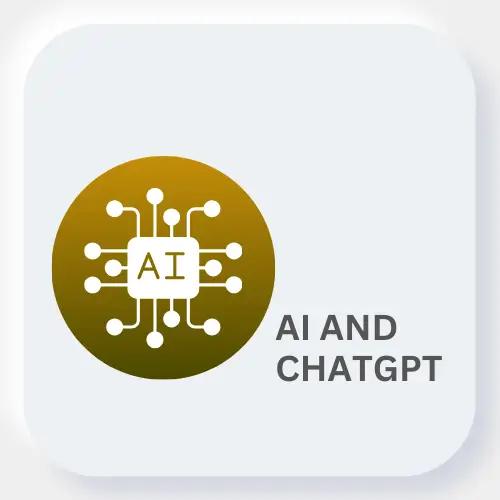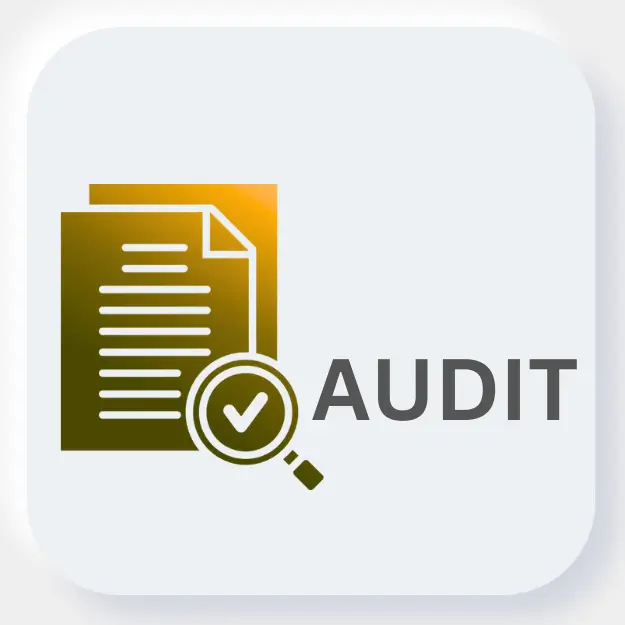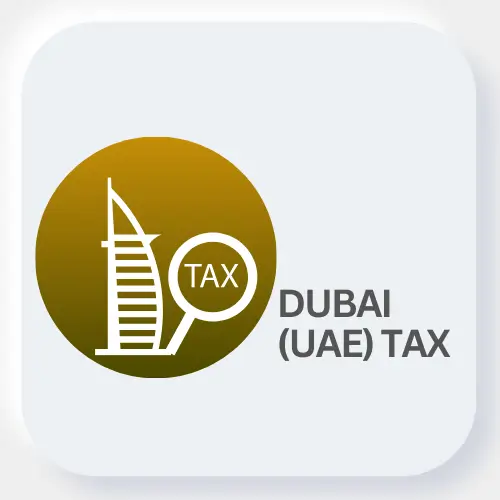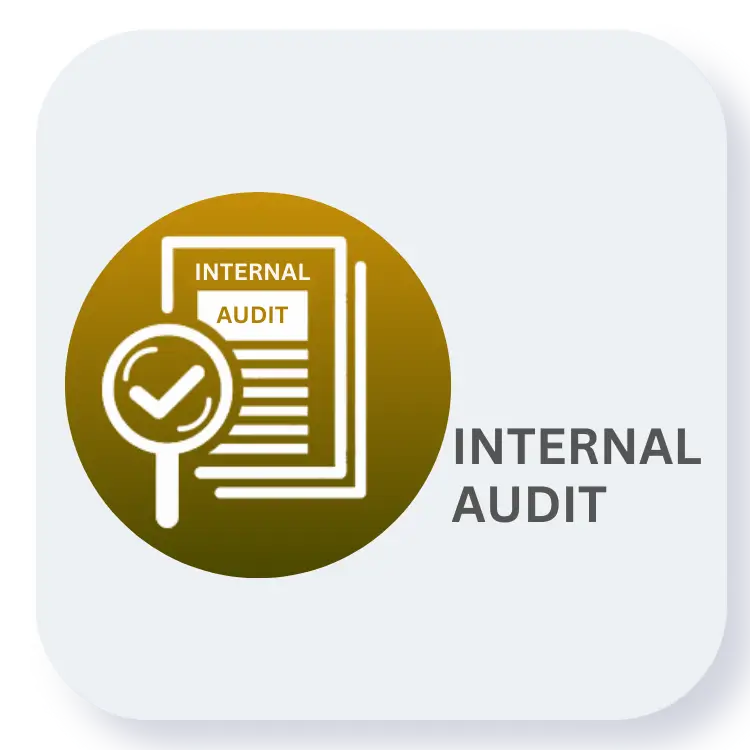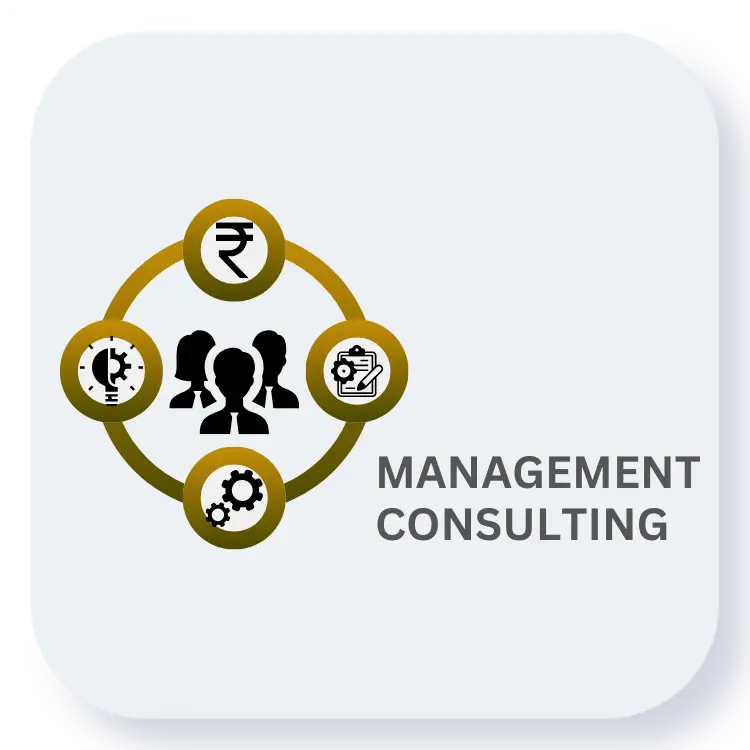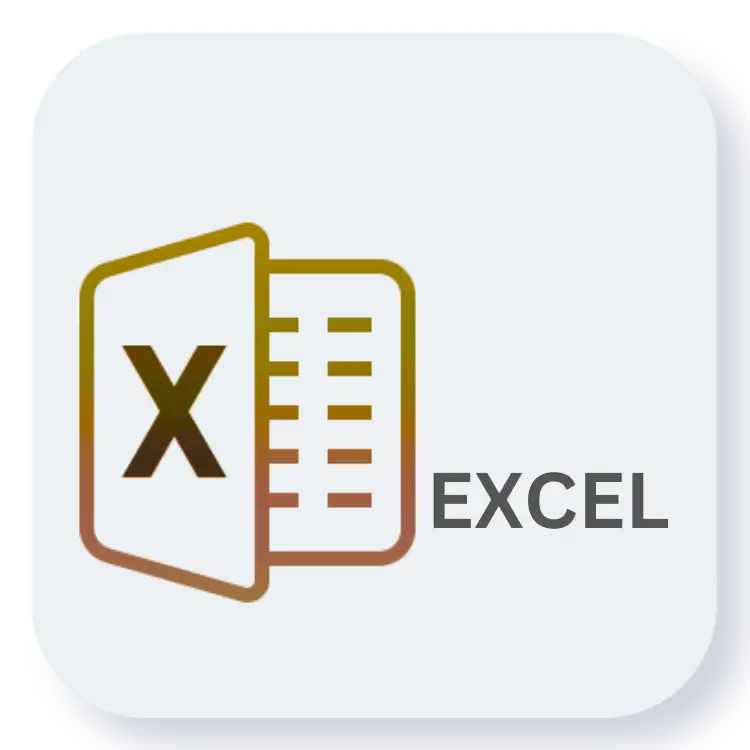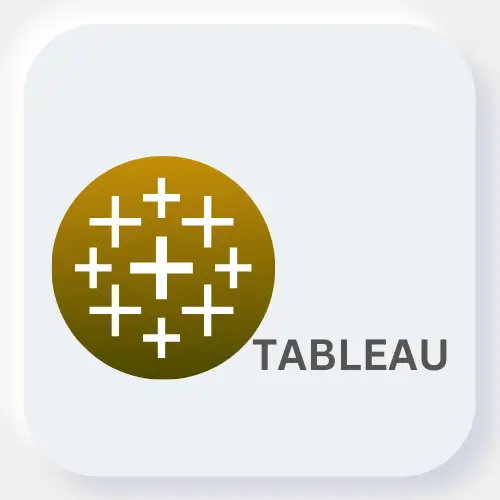Introduction
The first audit interview usually begins with shaky hands, a dry throat, and a head full of revisions
that suddenly seem to vanish. Hours of scrolling through blogs and forums, searching “how to prepare for
statutory audit interview” or “Big 4 interview questions”-still don’t prepare one for the wave of
uncertainty that hits when sitting across from a panel. No guide quite explains that it’s not just about
knowing the answers- it’s about managing the nerves and shifting into a professional mindset, right
there in that moment.
What no one told me back then was this: Statutory
audit interviews for CA jobs and CA articleship are
not about perfection; they’re about clarity, confidence, and connection.
Whether you’re preparing for your CA Articleship, applying to a Big 4 firm, or aiming for a junior audit
role - this guide will walk you through how to prepare for statutory audit interview the right way.
Why This Audit Interview Isn't Just Another College Viva
Unlike your classroom viva, this isn’t about rote learning. The statutory audit interview is where theory
meets reality. Interviewers aren’t just testing what you remember from ICAI modules—they’re checking:
- Can you spot errors in financial reports?
- Do you know what documentation matters?
- Can you explain audit steps clearly?
- How would you react in a real ethical dilemma?
It’s more of a conversation than a quiz—but one where every sentence reflects your audit mindset.
What Is Statutory Audit? (And How to Explain It In An Interview for CA jobs)
Before learning how to prepare for statutory audit interview, you must be able to explain what statutory
audit means in your own words.
A statutory audit is a legally required review of a company’s financial statements to ensure fairness and
compliance with laws and accounting standards.
But that’s the textbook definition. In an interview, talk about:
- Reviewing ledger entries and supporting documents
- Vouching and verifying invoices
- Examining controls and compliance
- Understanding materiality and risk
- Drawing conclusions and drafting the audit report
Pro Tip: Practice explaining audit to someone who’s not from commerce. That’s the ultimate clarity test.
How to Prepare for Statutory Audit Interview: The Smart Way
Let’s break down a practical strategy for how to prepare for statutory audit interview for CA articleship
- not just academically, but from the recruiter's perspective.
1. Know Your Core Audit Concepts Cold
You don’t need to know everything. But you need to know what matters most:
Accounting Standards:
- AS 10 – Fixed Assets
- AS 13 – Investments
- AS 16 – Borrowing Costs
Auditing Standards (SAs):
- SA 230 – Documentation
- SA 500 – Audit Evidence
- SA 320 – Materiality
Be Ready for These Audit Interview Questions:
- What is audit evidence?
- How do you perform audit of rent or salaries?
- What’s the purpose of a management representation letter?
- What’s the difference between internal
audit and statutory audit?
These questions test your conceptual clarity - not just definitions.
2. Study Real-Life Audit Failures (And Discuss Them)
If you're serious about how to prepare for statutory audit interview, include real cases in your
preparation. Interviewers love candidates who connect theory with reality.
Case Studies to Research for Statutory Audit Interview:
- Scam - Auditors' blind spots and data manipulation
- IL&FS - Lack of internal control and compliance
- Nirav Modi Fraud - Gaps in bank confirmations and risk assessment
Sample Interview Question:
"What do you think auditors missed in the IL&FS collapse?"
You don’t need perfect answers. A mature, thoughtful response shows depth.
3. Practice Speaking Like An Auditor
Reading is one thing. Speaking audit language fluently is another. That’s why mock interviews matter.
Here’s how to practice:
- Record yourself answering audit questions
- Practice with a friend or mentor
- Join a CA group chat (Telegram, Discord, etc.)
- Watch Big 4 mock interviews on YouTube
If you sound clear, structured, and confident - you’re already ahead.
4. Polish Your Soft Skills (They Matter More Than You Think)
Yes, technical knowledge gets you shortlisted. But soft skills get you selected.
Key Audit Soft Skills:
- Communication: Clear, calm explanations (especially for audit walkthroughs)
- Ethics: Knowing when to say no, escalate, or document
- Teamwork: Sharing audit work with seniors and article assistants
- Curiosity: Willingness to ask the why behind numbers
Possible Interview Twist:
“What if your senior asks you to skip an entry to save time?”
→ Say: “I’d respectfully raise the concern, document it, and seek a second opinion if needed.”
5. Tailor Your Resume for Statutory Audit Interviews
Your resume should scream “I understand audits” - even if you're a fresher.
Fix These Immediately:
- Mention actual audit work, even project-based
- Use words like: vouching, ledgers, compliance, CARO, SA 500, Excel audit file
- Add impact: “Reviewed 200+ expense vouchers and prepared audit working papers in Excel.”
One-page, audit-focused resumes work best. Use plain design unless otherwise asked.
Honest Answers About How to Prepare for Statutory Audit Interview
Here are some common questions and practical answers to help you prepare for a statutory audit interview,
especially as a fresher.
Q. I don’t have real audit experience. What should I say?
→ Be honest. Share how you studied audit reports, ICAI case studies, or watched audit simulations.
Q. What if I blank out during a technical question?
→ Say, “I’m not sure right now, but I’ll definitely read up after this.” It shows integrity.
Q. Do I need Excel knowledge for Statutory Audit?
→ Yes, at least basic. Pivots, filters, VLOOKUP, and formulas used in audit files matter.
Q. How can I crack an audit interview at a Big 4?
→ Focus on real examples, read company-specific cases, and align your mindset with audit quality.
Here are a few questions to help you prepare for the statutory audit
interview:
1. External Confirmation in Auditing
- Definition: Process where auditors directly obtain information from independent
third parties to verify client data.
- Examples: Bank confirmations, debtor/creditor balances.
2. Statutory Audit & Its Importance
- Meaning: A statutory audit is a mandatory examination of an entity’s financial
statements to ensure they present a true and fair view, comply with applicable accounting
standards or (IND
AS), and comply to regulatory requirements.
- Why is it important: It ensures accuracy, compliance with accounting standards,
compliance to legal regulations and to find out any misstatements.
3. SLM vs WDV Depreciation
Well, this one’s quite simple and is usually asked in statutory audit interviews for freshers. You
can read this definition but make sure you have conceptual clarity.
| Basis |
Straight Line Method (SLM) |
Written Down Value (WDV) |
| Depreciation amount |
Equal each year |
Higher in initial years, reduces over time |
| Formula basis |
(Cost – Scrap Value) ÷ Useful Life |
Fixed % on Book Value |
| Asset value reduction |
Uniform |
Accelerated |
4. Applicability & Objectives of CARO 2020
This is probably one of the most favourite questions of interviewers.
Applicability: applies to almost all companies required to undergo statutory audit
in India, for financial years commencing on or after 1 April 2021
Exemption (again, very important to remember):
| Category |
Details |
| Banking companies |
Exempt |
| Insurance companies |
Exempt |
| Section 8 companies (charitable entities) |
Exempt |
| One Person Companies (OPC) |
Exempt |
| Small Companies |
Exempt |
| Certain Private Companies (meeting ALL criteria) |
Exempt if:
• Gross receipts ≤ ₹10 Cr
• Paid-up capital + reserves ≤ ₹1 Cr
• Borrowings ≤ ₹1 Cr at any point during the year
• Not a holding or subsidiary of a public company
|
5. Audit of Rent Expenses
Steps:
- Verify lease/rental agreements.
- Cross-check rent payment vouchers with bank statements.
- Ensure correct classification & disclosure in accounts.
6. Audit Process
This question will basically tell if you’ve worked in a decent firm or not. Usually in mid-size or
sole proprietorship firms, audit process is not followed. But top firms are very strict about
following the audit process and everything is documented right from the beginning. So learn this
audit process by heart, but also back it up with real work that you may have done either in your
articleship or in any practical course (like Audit
MasterClass)
- Planning & understanding the entity.
- Risk assessment & control evaluation.
- Designing audit procedures.
- Performing substantive & compliance tests.
- Collecting and analysing evidence.
- Forming conclusions & preparing the report.
7. Audit Programme
A written plan detailing audit objectives, procedures, timing, and resources for effective execution.
8. Finance Lease vs Operating Lease
| Basis |
Finance Lease |
Operating Lease |
| Ownership risks |
Transferred to lessee |
Remain with lessor |
| Nature |
Similar to purchase |
Short-term rental |
| Accounting |
Asset/liability recorded in lessee books |
Expense recorded in P&L |
9. Qualifying Asset (AS 16)
- Assets that take substantial time to get ready for intended use/sale.
- Examples: Plants, buildings, infrastructure projects—all these take time to get ready, hence are
qualifying assets.
10. Earnings Per Share (EPS) Formula
An easy one. Know the formula and the significance while analysing financial statements. You can
also
learn the difference between normal EPS and Diluted EPS (DEPS).
EPS = Net Profit to Shareholders / Weighted Avg no. of Equity Shares
11. Audit Evidence
Information collected via observation, inspection, inquiries, and confirmations to form an opinion.
12. Written Representations
- Management’s signed statements confirming the completeness, accuracy, and validity of
information provided.
13. Importance of Audit Documentation
- Serves as proof of compliance with auditing standards.
- Provides basis for auditor’s conclusions.
14. Matching Concept
- Recognise expenses in the same period as related revenues.
- Ensures accurate profit measurement.
15. Valuation of Investments (AS 13)
| Type |
Valuation |
| Current Investments |
Lower of cost or fair value |
| Long-term Investments |
Cost; if permanent decline in value → adjust to lower |
16. Materiality vs Audit Sampling
| Aspect |
Materiality |
Audit Sampling |
| Meaning |
Significance of errors in decision-making |
Testing a portion of data to form opinion |
| Purpose |
Decide focus areas in audit |
Reduce work while maintaining reliability |
17. Verifying Going Concern Assumption
- Analyse liquidity & solvency ratios.
- Review debt repayment obligations.
- Evaluate management’s future plans.
- Assess economic & industry conditions.
18. Statutory Audit vs Tax
Audit
| Aspect |
Statutory Audit |
Tax Audit |
| Purpose |
Accuracy & fairness of financial reports |
Compliance with tax laws |
| Governing Law |
Companies Act, etc. |
Income Tax Act, Sec. 44AB |
| Scope |
Overall financial statements |
Tax-related records |
Here’s our Statutory Audit Interview Guidebook for you to download: Download
Here
It has a list of all the important questions which are extremely relevant for your statutory
audit
interview.
Final Thoughts: You’re More Prepared Than You Think
Let’s bring this back to the beginning - you asked how to prepare for a statutory audit interview,
and now you’ve got a roadmap.
Here’s the truth:
- You don’t need to be a genius. You need to be well-prepared, ethically grounded, and eager to
learn. That’s what audit firms look for.
So tonight, instead of stressing:
- Watch one statutory audit case video
- Review 3-4 SAs that matter
- Practice answering “Tell me about yourself”
- Sleep early and show up with confidence
Whether it's your first CA Articleship interview or your third audit job switch - this guide on how
to prepare for statutory audit interview is your audit armor.
And remember: Your first audit question won’t be "What is SA 500?" It’ll be "Can we trust you to
think critically and act responsibly?"
You’ve got this. Bookmark this. Come back the night before your interview. Good luck!


